My research provided a real time commentary throughout the COVID-19 pandemic from start to finish. And in many instances the findings and discussions have relevance beyond COVID-19. I co-authored the first economics paper published in an economics journal that, among others, made a simple prediction that would play out throughout the pandemic: we noticed that most humans rely on linear mental models when thinking about the disease. This implied to me that both politics and society generally would struggle. As the pandemic unfolded, this prediction proved correct many times.
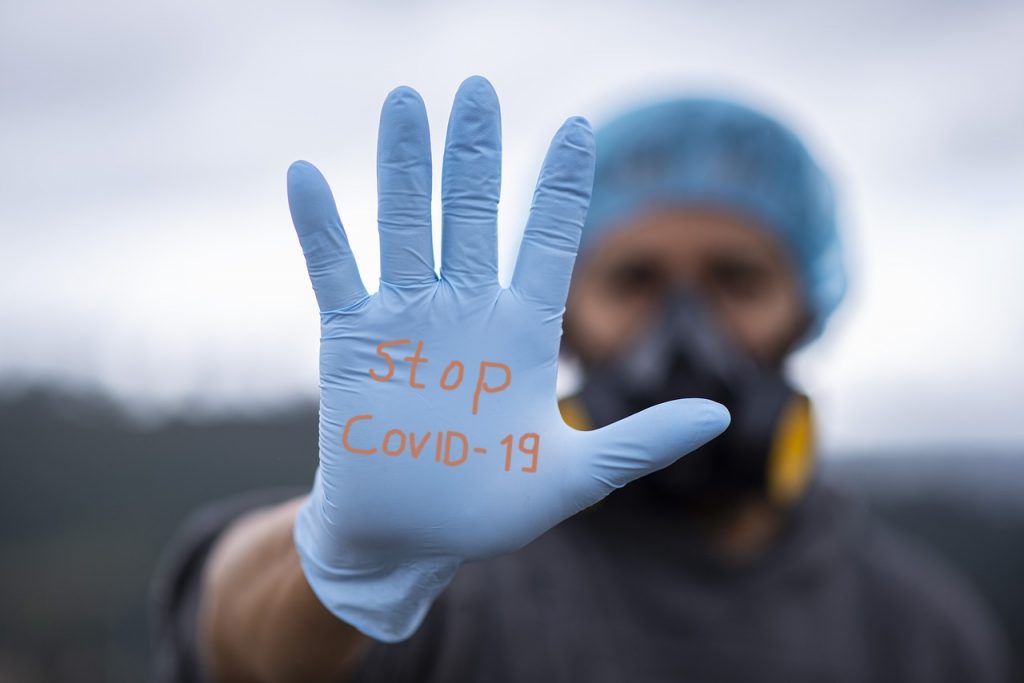
The research also highlighted that political leadership and policy choices would need to be very carefully evaluated as politics, just like society more generally, may struggle with designing policy suitable for non-linear dynamics. Further, much of our public infrastructure is not designed for such processes — down to the plumbing in the information and technology infrastructure. My research highlighted that responsive, agile, just-in-time research is indeed possible and is technologically empowered in societies that embrace knowledge creation through the relatively open sharing of data. I see the pandemic research as being a first showcase that this type of research can be done and that economists, if learning to work differently, can become effective champions of evidence-based policy making as a lived practice.
Research
Coronavirus Perceptions And Economic Anxiety, joint with Lukas Hensel, Johannes Hermle, Christopher Roth, March 2020, forthcoming at Review of Economics and Statistics,🔓 Open access
⌨️ Blog Post
Selected Broader coverage: Wirtschaftswoche, Hargreaves and Landsdown, Phys.org, VoxEU, LSE US Politics, World Economic Forum.
Context: This paper was the first economics paper to be published on the pandemic. Among many things, it showcased that the lack of comprehension of non-linear processes may explain why it may be difficult for societies to handle it. It may help explain some of the narratives that emerged around the pandemic.
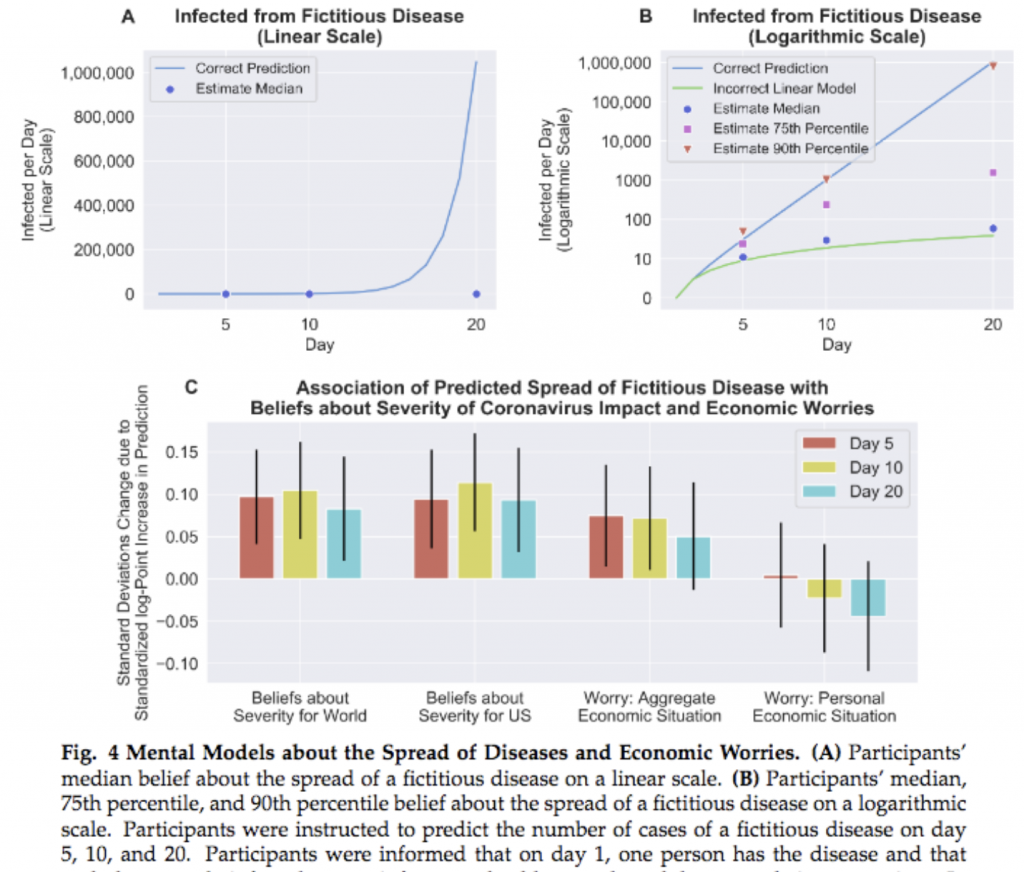
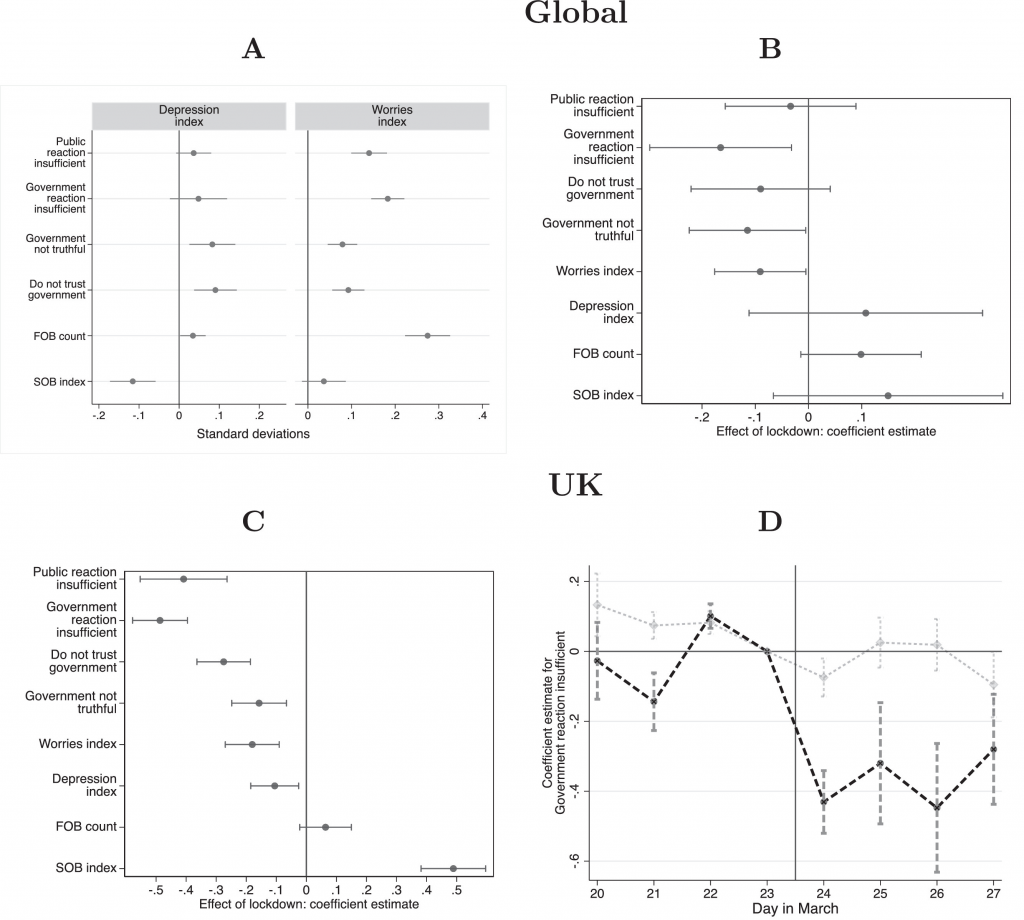
Global Behaviors, Perceptions, and the Emergence of Social Norms at the Onset of the COVID-19 Pandemic, with M. Witte, L. Hensel, J. Jachimowicz, J. Haushofer, A. Ivchenko, S. Caria, E. Reutskaja, C. P. Roth, S. Fiorin, M. Gómez, G. Kraft-Todd, F. M. Götz, Erez Yoeli, Journal of Economic Behavior and Organization, 193, 473–496.
🔓 Open access
⌨️ Blog Post
Broader coverage: Alternatives Economiques, Bloomberg, El Pauta, Gallup, Jakarta Globe.
Context: This paper was a citizen science-crowd sourced data effort around the early stage of the pandemic. It uses a UK case study to highlight how the lack of announcement of an earlier shutdown was causing notably higher levels of anxiety among citizens in the UK. The delayed shutdown in the first wave of the pandemic resulted in a much more notable COVID-19 excess death toll in the UK.
Subsidizing the spread of COVID-19: Evidence from the UK’s Eat Out to Help Out Scheme, The Economic Journal, Volume 132, Issue 643, April 2022, Pages 1200-1217. 🔓 Open access
⌨️ Blog Post
Selected Broader Coverage: ABC News, AlKaleej, Bloomberg, Bisnis (Indonesian), CGTN (1), CGTN (2), El Periodico Catalunya, FD (Dutch), Fox News, Forsal (Polish), iNews, La Repubblica, Huffington Post, Il Fatto Quotidiano, The Guardian, Nature, Der Spiegel (German), Globo, The Northern Echo, The Liverpool Echo, The News International, Sky News, The Scotsman, Press and Journal, Reuters, Tagesspiegel, The Telegraph, The Independent, The Times, mas reino unido, News 24, New Zealand Herald, MarketWatch, HKET (Chinese), Wales Online, Wired, Weekendavisen (Danish), The Daily Express, The British Medical Journal (BMJ), The Guardian, Mirror, Independent, Telegraph, The Financial Times, Metro.
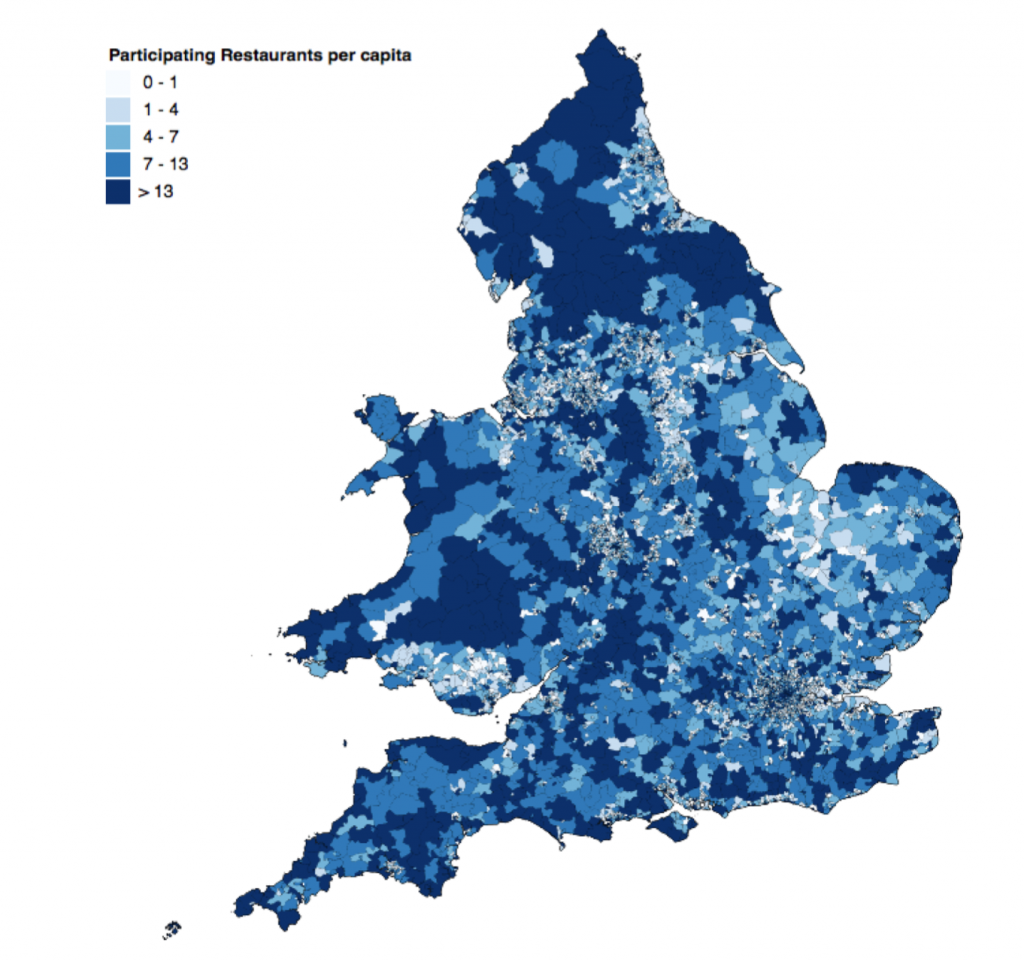
Context: This paper documents how a policy choice, to subsidize eating out during summer 2020 may have had an adverse effect fostering disease spread. And that is relevant even if the reproduction rate was kept below 1. It had little economic effect. It may have been conceived to stabilize the economy and boost sentiment. It may have been an overreaction to correct for a lack of decisive leadership at the start of the pandemic.
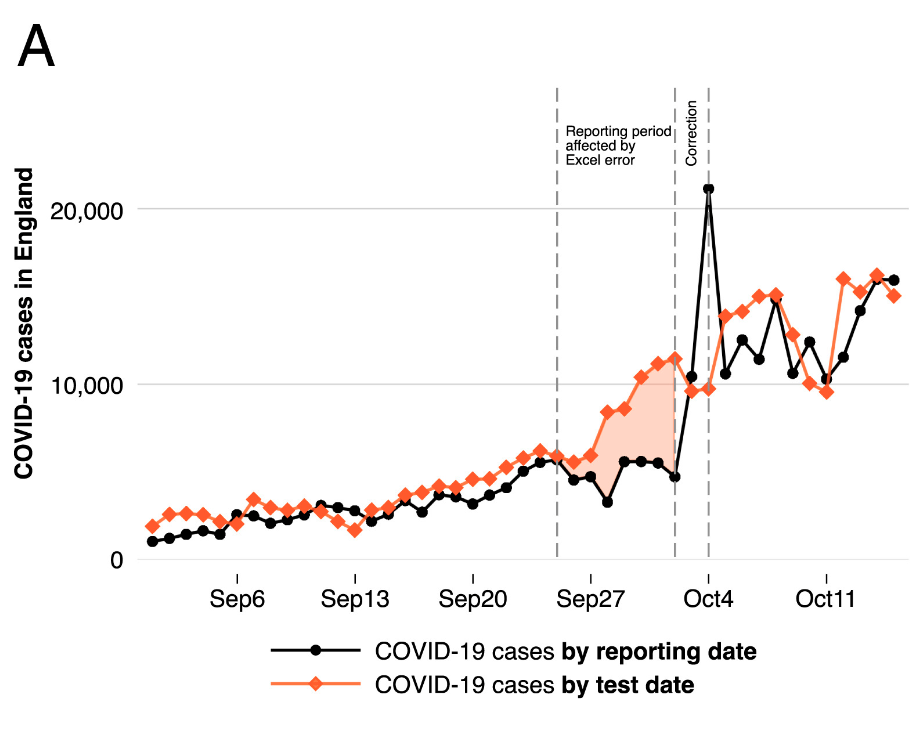
Measuring the Scientific Effectiveness of Contact Tracing: Evidence from a Natural Experiment, joint with Thomas Graeber, Proceedings of the National Academy of Sciences, Volume 118 Issue 33, 2021. A previous version circulated as Does Contact Tracing Work? Quasi-Experimental Evidence from an Excel Error in England, medrxiv pre-print, 2020, 🔓 Open access.
⌨️ Blog Post
Selected Broader Coverage: Financial Times (1), Financial Times (2), City AM, Sky News, The Guardian, MSN, Medscape, News Medical, Neue Zuericher Zeitung (German), Le Monde (French), Die Welt (German), ZAP (Portugese), FocusTech (Italian), Svenske Dagblad (Swedish), Bloomberg School of Public Health Summary, Financial Times, Wired, Atlantic (French), Liberation (French), La Libre (French).
Context: This paper studies one of the most curious natural experiments of all times. A data processing mistake that was likely caused by non-robust low quality IT systems being procured by an outsourcing company.
Measuring the Epidemiological Impact of a False Negative: Evidence from a Natural Experiment, CAGE Working Paper 596, 2021, 🔓 Open access
⌨️ Blog Post
Selected Broader Coverage: BBC Points West (Youtube) (UK), The Economist (UK), The Times (UK), BBC (UK).
Context: This paper documents the epidemiological impact of a false negative on the pandemic in England exploiting a lab processing error that resulted in 40,000 individuals being told they were COVID-19 negative despite testing positive with a lateral flow test. The paper estimates a pandemic multiplier effect. The results from the working paper have since been confirmed in numerous other studies.
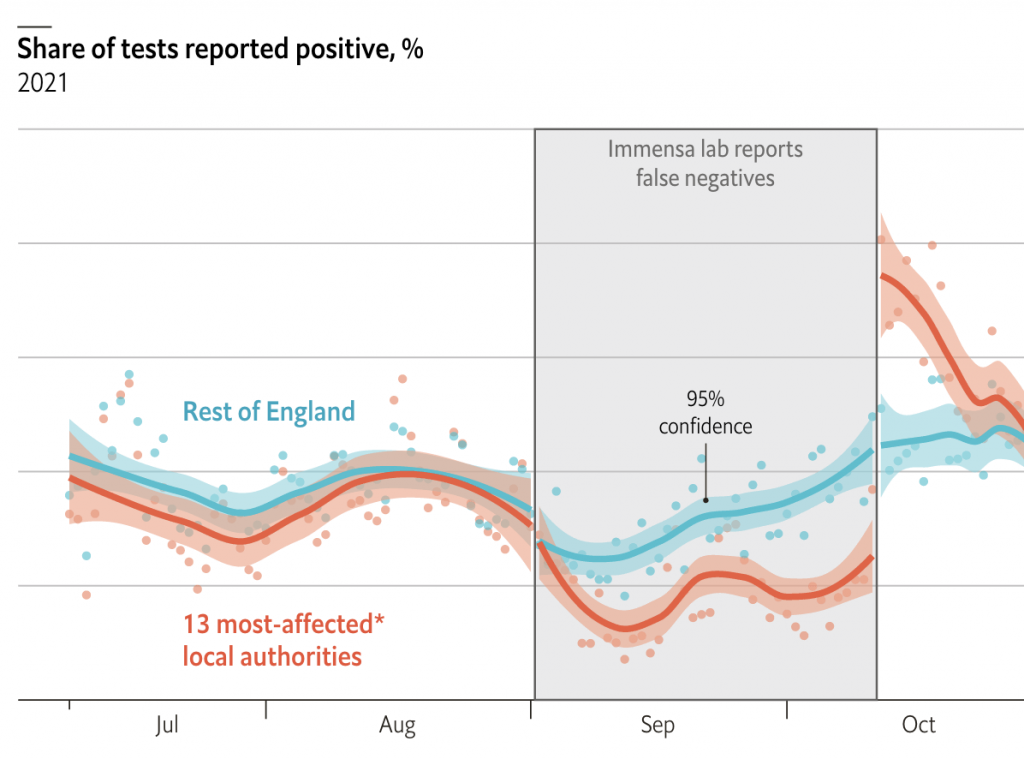
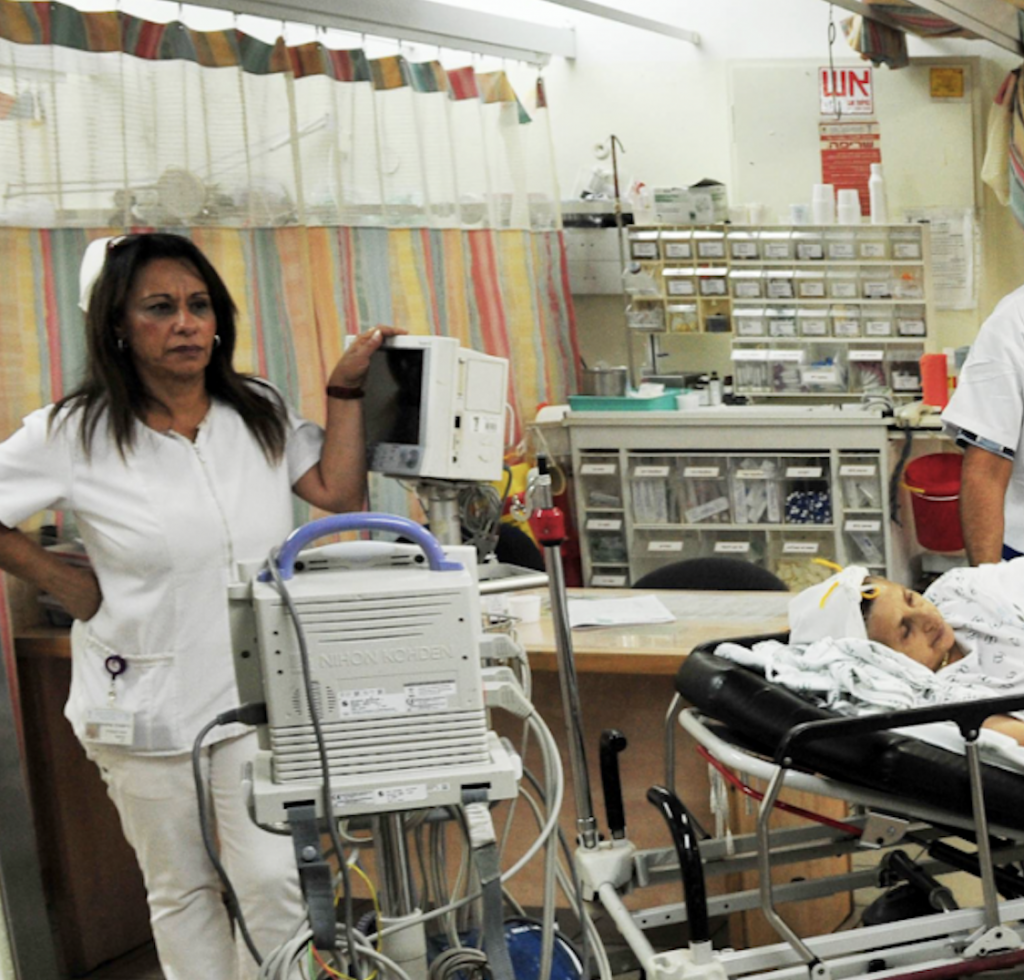
Pandemic Pressures and Public Health Care: Evidence from England, joint with Christopher Rauh, CAGE Working Paper 607, 🔓 Open access
⌨️ Blog Post
Selected Broader Coverage: Frankfurter Allgemeine Zeitung (German), Free Radio (UK), My London (UK), New Scientist (UK), Sky News (UK), The National (UK), Brisbane Times (Australia), La Vanguardia (Spanish), Sydney Morning Herald (Australia), The Economist (UK), Yahoo Finance (US).
Context: This paper documents how the pandemic and its relatively poor handling in the UK has resulted in significant onward pressures on the health care system that is likely to cause numerous excess deaths for the next years to come as the healthcare system only slowly recovers from the pandemic shock.
Impact
My work around the pandemic, I think, has had significant impact on how policy makers are viewing the crisis. It also has thrown up a lot of questions around the role of government interventions, the specific choices that were made and, well, raised very fundamental questions about what type of society we want to live in. During the pandemic, I have been involved in a few calls with the Treasury, I presented my research to Public Health England or the UK Health Security Agency and had interactions with a few individuals in leading advisory roles in the UK. The UK public inquiry into COVID-19 and its handling will throw up a lot of questions that resonate with my research on austerity and the role of the state that I am currently further formalising. It may also reveal further insights into the workings of politics and raise questions whether our systems of administering state capacity are fit for purpose in the 21st century as the systemic challenge of the climate crisis puts us through yet another test.
I was not asked to comment on any of these issues. But I took the liberty to submit written evidence to the COVID-19 inquiry and share a few reflections.
Excerpt from Thiemo Fetzer’s submission to the Public COVID-19 Inquiry.
Tell us about your experiences (Required). This can be a past experience, something that’s still happening, or both.
I carried out research during the pandemic starting right from February 2020, studying the policy response to the pandemic. I felt a call to service. The governments own stated ambition to following the science requires creation of such scientific knowledge. And this knowledge needs to be created fast as the situation is constantly evolving.
I was working insane hours to do my bid: as an academic and researcher at a UK University and as somebody who has chosen to make the UK his home. My call of service was to do my job: to create robust scientific knowledge and to build scientific evidence to learn how our society can handle this pandemic. To identify areas where things are going well and where we can improve in the handling of the pandemic.
Lives were at stake. I wanted to do my part.
As a result, I wrote four very rigorous research papers in record time. Three of these papers are now published in some of the leading scientific journals being recognized as import scientific contributions. The working paper versions and the published versions of the papers are identical in substance and content highlighting that the research findings were robust at the time the research was first published as working papers.
The research paper that received most widespread attention was studying the impact that Eat Out To Help Out scheme had on causing more COVID19 infections in a broadly unprotected population.
The scheme went ahead despite a vaccination being within sight. Nearly 1 billion pounds in taxpayer money was used to encourage social mixing – which, all research evidence at the time highlighted, was a risk to spreading COVID-19.
I felt disheartened: the implicit and explicit communication that the government sent by bringing forth such a program. It was suggesting that social mixing was not risky. It conveyed that the government endorses social mixing and willing to use taxpayer resources to actively encourage that.
It affected severely my well-being as the government seemed to have sponsored a program that was explicitly going against the advice of public health experts at the time and all knowledge that was built up. My research confirms that the scheme did cause an uptick in infection and thereby contributed to the second wave being much broader and deadlier than it should have been.
I also want to point out some other reserach that actually looks at data handling errors. For example, the UK’s Public Health Agency lost 16,000 COVID cases due to an Excel format error. This resulted in these cases not to be referred to NHS Test and Trace, which was funded by taxpayer resources. I show in another paper, that also received broad media coverage, that this had a significant impact on the spread of COVID19.
I was distressed to hear that a lot of public money went into NHS Test and Trace and it seemed to have been built using a very outdated software technology that is not designed to handle large volumes of cases. I want to know why this could have happened and what the consequences and lessons learned were, and ultimately, who is responsible for this error.
Tell us about the effect on you and people around you (Optional). People around you might be your friends, family, or work colleagues.
I felt disheartened: the implicit and explicit communication that the government implied through such a program was suggesting that this was not risky. That the government endorses social mixing and uses taxpayer resources to encourage that.
It affected severely my well-being as the government seemed to have sponsored a program that was explicitly going against the advice of public health experts at the time. My research confirms that the scheme did cause an uptick in infection and thereby contributed to the second wave being much broader. All data points in that direction and the research I have done is published and has gone through the process of peer review.
Individual choice to expose oneself to that risk of infection is very different from collective taxpayer money being used to actively encourage behavior that is dangerous to others.
This is why there are indoor smoking bans and a legal requirement to wear seat belts when driving: to reduce the health burdens that an individual choice imposes on others.
The government’s reaction to my research work was one of denial. No substantive rebuttal was done pointing to where I made mistakes in my research. This has caused significant distress and disappointment.
I was doing my job: to build scientific knowledge to help the government to “following the science”, but me, as a researcher, did not feel that the science was listened to. Or that an adequate response to my scientific work was given.
This has caused me distress. It also causes me upset knowing that my taxpayer money was used actively in a way that has caused preventable harm by encouraging risky behavior. I don’t think it should be that way.
Tell us what you think could be learned (Optional). What could have been done better, or differently? Was something done well?
It is important that the public see the evidence and the input that went into the decision-making that brought forth Eat-out-to-help-out. And how other errors such as losing 16000 COVID cases in NHS T&T were processed by the government.
As a citizen and taxpayer and scientist that was working long hours to produce the scientific knowledge that the government suggested it was following, I want to ensure that this was taken to heart.
I want to know how the government reacted to such research evidence at the time. I want to know how the government handled errors and how the government embedded new scientific knowledge that was being produced in near real-time into its decision-making processes.